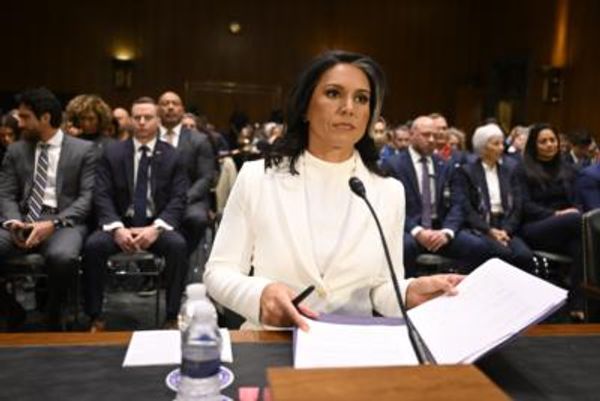
It turns out the world’s largest company and richest man are vulnerable to tariff shocks just like everyone else. That became clear on Monday when President Donald Trump’s planned levies spooked markets, and caused shares of Apple and Elon Musk’s Tesla to be hit hardest among America’s tech giants.
While markets breathed a sigh of relief after Trump agreed to pause tariffs on the country’s North American allies, Tesla’s stock stayed flat even as other auto stocks rebounded more strongly. Though China hit back at the U.S. with counter tariffs Tuesday morning, Apple’s stock gained 2% by midday as investors considered how the iPhone maker can adjust production if trade tensions persist.
Tesla’s stock fell 5% on Monday, the biggest drop for any member of the so-called Magnificent Seven—the largest companies in the U.S. by market capitalization. Like every other auto manufacturer, Tesla would be hurt badly by Trump’s proposed 25% tariff on Canada and Mexico, owing to the industry’s deeply interwoven supply chains. An engine, transmission, or other component might cross America’s borders with both countries seven or eight times before it ends up in a finished vehicle.
As Tesla CFO Vaibhav Taneja noted on the company’s earnings call last week, the electric vehicle manufacturer has tried to localize its supply chain in markets like the U.S., Mexico, and China to limit its exposure to potential disruptions. Nonetheless, he said, the company is still very reliant on parts from across the world for all its businesses.
“Therefore, the imposition of tariffs, which is very likely, and any reciprocity will have an impact on our business and profitability,” he said.
That hasn’t stopped CEO Elon Musk from becoming Donald Trump’s biggest financial supporter and leading the newly formed Department of Government Efficiency’s cost-cutting crusade. However, Musk made clear that he was no fan of tariffs in May, when President Biden imposed a 100% import tax on all Chinese EVs.
“Generally, things that inhibit freedom of exchange or distort the market are not good,” he said to attendees at the VivaTech conference in Paris over video link.
Neither Tesla nor Apple responded to requests for comment.
Apple can adjust iPhone production
Apple’s stock dropped 3% on Monday, but Bank of America analysts said Trump’s 10% tariff on all Chinese goods should have a minimal impact on the company’s bottom line. That belief holds even if Apple does not get the same exception for the iPhone that it received when Trump launched trade salvos against China during his first term.
“In a scenario where Apple does not raise prices in the U.S., we see a negligible $0.05 negative impact to earnings,” a team led by Wamsi Mohan wrote in a note on Monday.
BofA estimates 80% of Apple products sold in the U.S. can be sourced from outside China. Most iPhone models can now be made in India, the analysts said, and manufacturing partners could ramp up production in South Asia and ship to the U.S. if Trump keeps or escalates his China tariffs.







